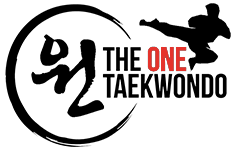In the dynamic world of martial arts, belt testing stands as a pivotal moment—an opportunity for practitioners to demonstrate their skills, dedication, and growth on their journey towards mastery. While some may view belt testing as a mere formality, its importance goes far beyond the acquisition of a colored belt. In Woodstock, GA, where martial arts thrive as a vibrant community, understanding the significance of belt testing sheds light on the transformative power it holds for practitioners of all ages.
Here’s why belt testing is essential in martial arts:
1. Measuring Progress and Growth: Belt testing serves as a tangible way to assess a practitioner’s progress and growth over time. From mastering fundamental techniques to refining advanced forms, each belt level represents a milestone in the martial arts journey. By undergoing testing, practitioners receive valuable feedback from instructors, enabling them to identify areas for improvement and set new goals for their continued development.
2. Building Confidence and Self-Esteem: Successfully passing a belt test instills a sense of accomplishment and pride in practitioners. It validates their hard work, dedication, and perseverance, boosting their confidence and self-esteem. For children especially, earning a new belt serves as a tangible reward for their efforts, fostering a positive sense of self-worth and motivating them to strive for excellence in all aspects of their lives.
3. Fostering Discipline and Commitment: Belt testing requires disciplined training and consistent practice leading up to the test date. Practitioners must demonstrate not only physical skill but also mental focus, resilience, and determination. Through the preparation process, individuals learn the value of discipline and commitment—qualities that are essential not only in martial arts but also in academics, work, and personal relationships.
4. Promoting Goal Setting and Achievement: Belt testing provides practitioners with clear and achievable goals to work towards. Whether aiming to advance to the next belt rank or mastering specific techniques, the testing process encourages goal setting and goal achievement. By setting goals and working diligently to accomplish them, practitioners develop a sense of purpose and direction in their martial arts journey, fostering a lifelong commitment to self-improvement and personal growth.
5. Cultivating Respect and Tradition: Belt testing upholds the traditions and values of martial arts, including respect for instructors, peers, and the art itself. Through the testing process, practitioners learn to demonstrate humility, respect, and sportsmanship, both on and off the mats. Additionally, participating in belt ceremonies and rituals reinforces the sense of community and camaraderie within the martial arts school, strengthening the bond between practitioners and their peers.
In conclusion, belt testing is a crucial component of the martial arts experience, serving as a marker of progress, a catalyst for personal growth, and a celebration of dedication and achievement. In Woodstock, GA, where martial arts thrive as a vibrant and welcoming community, embracing the importance of belt testing enriches the martial arts journey for practitioners of all ages, empowering them to reach new heights of skill, confidence, and self-discovery.

